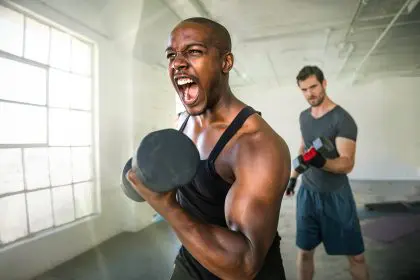Confidence isn’t something you’re born with or without – it’s a skill that can be developed and strengthened through specific daily habits. While building lasting confidence takes time, certain practices can provide immediate boosts to how you feel about yourself and how others perceive you. These simple yet powerful habits work by changing your physiology, mindset, and behavior in ways that create instant shifts in your confidence levels.
The beauty of these confidence-boosting habits lies in their accessibility and immediate impact. Unlike complex personal development programs that require months to show results, these practices can be implemented immediately and provide noticeable benefits within minutes. They work by leveraging the mind-body connection, using proven psychological principles, and creating positive feedback loops that reinforce confident behavior.
Understanding how confidence works helps explain why these habits are so effective. Confidence is both a mental state and a physical experience that involves your thoughts, emotions, posture, breathing, and behavior. When you change any of these elements, you can influence your overall confidence level almost immediately. These habits target multiple aspects of confidence simultaneously, creating compound effects that produce lasting results.
The psychology of instant confidence
Confidence operates through interconnected systems in your brain and body. Your posture affects your hormone levels, your breathing influences your emotional state, and your thoughts shape your perception of yourself and your capabilities. These systems work together to create your overall sense of confidence, which means that changing any single element can positively impact the entire system.
The concept of embodied cognition explains how physical actions influence mental states. When you adopt confident postures, speak with authority, or engage in power behaviors, your brain receives feedback that reinforces confident feelings. This creates an upward spiral where confident actions lead to confident feelings, which inspire more confident actions.
Instant confidence boosts work because they interrupt negative thought patterns and replace them with positive ones. They also activate the body’s natural confidence mechanisms, including improved posture, deeper breathing, and increased energy levels. These physiological changes send signals to your brain that you’re in a confident state, creating genuine feelings of self-assurance.
12 habits that create instant confidence boosts
1. Adopt powerful posture for two minutes
Your posture directly influences your confidence levels through neurochemical changes in your body. Standing tall with your shoulders back, chest open, and head held high for just two minutes can increase testosterone levels while decreasing cortisol, the stress hormone. This creates an immediate shift in how confident you feel.
The power pose effect works because your brain interprets your body language as a signal of your emotional state. When you stand like a confident person, your brain assumes you must be confident and adjusts your neurochemistry accordingly. This creates genuine feelings of self-assurance that extend beyond the physical pose itself.
Practice this habit before important meetings, social events, or any situation where you want to feel more confident. Find a private space, stand with your feet shoulder-width apart, place your hands on your hips or raise them above your head, and maintain this position while breathing deeply. The effects begin almost immediately and can last for hours.
2. Make direct eye contact during conversations
Eye contact is one of the most powerful confidence signals you can send to others and yourself. When you maintain appropriate eye contact during conversations, you project confidence while also feeling more confident internally. This creates a positive feedback loop that reinforces your sense of self-assurance.
The practice of making eye contact activates neural pathways associated with confidence and social dominance. It requires you to be present in the moment and engaged with the person you’re speaking with, which naturally increases your sense of personal power and connection.
Start by making eye contact for 3-5 seconds at a time, then looking away briefly before re-establishing contact. This feels natural and comfortable while still projecting confidence. With practice, maintaining eye contact becomes automatic and significantly boosts your confidence in social situations.
3. Speak slower and lower your voice
The pace and tone of your voice directly impact how confident you appear to others and how confident you feel internally. Speaking slower and using a slightly lower pitch creates the impression of authority and self-assurance while also making you feel more grounded and confident.
Fast speech often indicates nervousness or lack of confidence, while slow, measured speech suggests thoughtfulness and authority. When you deliberately slow down your speech, you force yourself to breathe more deeply and think more clearly, which naturally increases your confidence levels.
Practice speaking at about 140-160 words per minute, which is considered the ideal pace for confident communication. Lower your voice slightly from its natural pitch, but avoid going so low that it sounds forced or unnatural. This combination creates an immediate confidence boost that others will notice and respond to positively.
4. Use confident body language consistently
Your body language communicates confidence before you even speak. Simple changes like keeping your shoulders back, maintaining an open stance, and using purposeful gestures can instantly boost your confidence while signaling self-assurance to others.
Confident body language includes taking up appropriate space, avoiding fidgeting or nervous movements, and moving with purpose and intention. These behaviors activate the same neural pathways as genuine confidence, creating real feelings of self-assurance rather than just the appearance of confidence.
Focus on one aspect of body language at a time until it becomes natural. Start with your posture, then work on your gestures, facial expressions, and overall movement patterns. Each improvement builds on the others, creating a comprehensive confidence boost that feels authentic and powerful.
5. Practice deep breathing techniques
Deep breathing immediately activates your parasympathetic nervous system, which creates feelings of calm confidence. When you breathe deeply from your diaphragm rather than taking shallow chest breaths, you send signals to your brain that you’re in control and feeling confident.
The 4-7-8 breathing technique is particularly effective for instant confidence boosts. Inhale for 4 counts, hold for 7 counts, then exhale for 8 counts. This pattern quickly shifts your nervous system into a calm, confident state while providing your brain with the oxygen it needs to think clearly.
Use this technique before presentations, important conversations, or any situation where you want to feel more confident. Even a few deep breaths can create noticeable changes in your confidence levels within seconds.
6. Wear clothes that make you feel powerful
The clothes you wear directly impact your confidence levels through a psychological phenomenon called enclothed cognition. When you wear clothes that make you feel powerful and attractive, you actually perform better and feel more confident in various situations.
Choose clothing that fits well, makes you feel attractive, and aligns with the image you want to project. This doesn’t mean expensive clothes are necessary – it means choosing items that make you feel like the best version of yourself. The key is selecting clothes that boost your mood and make you feel capable and attractive.
Pay attention to how different outfits make you feel and build a wardrobe around pieces that consistently boost your confidence. Having go-to confidence-boosting outfits ensures you always have options that will make you feel powerful and self-assured.
7. Smile genuinely and frequently
Smiling creates instant confidence boosts through multiple mechanisms. It releases endorphins that improve your mood, makes you appear more approachable and attractive to others, and actually tricks your brain into feeling happier and more confident through facial feedback.
The key is genuine smiling rather than forced expressions. Think of something that makes you happy or grateful, and let that feeling create a natural smile. This authentic expression will feel more comfortable and create stronger confidence benefits than artificial smiling.
Practice smiling before entering social situations, during conversations, and even when you’re alone. The act of smiling, even when you don’t feel like it initially, can shift your emotional state and boost your confidence within minutes.
8. Use positive self-talk and affirmations
Your internal dialogue directly impacts your confidence levels. Replacing negative self-talk with positive affirmations and encouraging inner dialogue creates immediate shifts in how you feel about yourself and your capabilities.
Effective positive self-talk focuses on your strengths, past successes, and current capabilities rather than generic affirmations that don’t feel authentic. Use phrases like “I can handle this,” “I’ve succeeded before and I can succeed again,” or “I have valuable skills and knowledge to offer.”
Practice positive self-talk before challenging situations and throughout your day. The more you reinforce positive messages about yourself, the more your brain begins to believe them, creating lasting improvements in your confidence levels.
9. Maintain excellent personal hygiene and grooming
Good hygiene and grooming create instant confidence boosts by making you feel attractive and put-together. When you know you look good, you naturally feel more confident in social and professional situations.
This includes regular showering, dental care, neat hair, clean clothes, and attention to details like trimmed nails and appropriate grooming for your situation. These seemingly small details add up to create a polished appearance that boosts your confidence and makes positive impressions on others.
Develop a consistent grooming routine that ensures you always feel clean, attractive, and well-presented. This foundation of good self-care creates a baseline of confidence that supports all your other confidence-building efforts.
10. Engage in power gestures and movements
Certain gestures and movements naturally boost confidence by activating the same neural pathways as genuine feelings of power and self-assurance. These include firm handshakes, purposeful walking, and expansive gestures that take up space.
Power gestures work because they mimic the natural movements of confident people. When you adopt these movements, your brain receives feedback that you’re in a confident state, which creates genuine feelings of self-assurance.
Practice power gestures like stepping forward when making a point, using open hand gestures while speaking, and moving with purpose and intention. These movements should feel natural and comfortable while still projecting confidence and authority.
11. Focus on your strengths and past successes
Confidence comes from evidence of your capabilities and past achievements. Taking a moment to remind yourself of your strengths, skills, and previous successes creates instant confidence boosts by shifting your focus from doubts to proven abilities.
Keep a mental or written list of your accomplishments, skills, and positive qualities that you can reference when you need a confidence boost. This evidence-based approach to confidence building is more effective than generic positive thinking because it’s based on reality rather than wishful thinking.
Before challenging situations, spend a few minutes reviewing your relevant skills and past successes. This mental preparation creates genuine confidence based on your actual capabilities and achievements.
12. Practice gratitude and appreciation
Gratitude creates instant confidence boosts by shifting your focus from what’s lacking to what’s abundant in your life. When you appreciate your current situation, relationships, and opportunities, you naturally feel more confident and optimistic about your future.
Practicing gratitude also improves your mood and energy levels, which directly impact your confidence. People who regularly practice gratitude report feeling more confident, optimistic, and capable of handling challenges.
Spend a few minutes each day acknowledging things you’re grateful for, including your own qualities, achievements, and opportunities. This practice creates a positive mindset that supports confident behavior and attracts positive responses from others.
Creating compound confidence effects
These habits become even more powerful when combined together. Using multiple confidence-boosting habits simultaneously creates compound effects that produce dramatic improvements in how you feel and how others perceive you.
Start by implementing one or two habits consistently until they become automatic, then gradually add additional practices. This approach ensures that each habit becomes integrated into your natural behavior rather than feeling forced or artificial.
The key is consistency rather than perfection. Even practicing these habits imperfectly will produce noticeable improvements in your confidence levels, and regular practice will make them feel natural and effortless over time.
Understanding the science behind instant confidence
These habits work because they leverage the bidirectional relationship between your mind and body. When you change your physiology through posture, breathing, and movement, you directly influence your psychology and emotional state.
The habits also work by interrupting negative thought patterns and replacing them with positive ones. Instead of focusing on fears or doubts, you’re actively engaging in behaviors that create confidence and self-assurance.
Neuroplasticity research shows that regular practice of these habits actually changes your brain structure over time, making confident behavior more automatic and natural. This means that what starts as conscious effort eventually becomes unconscious competence.
Making confidence habits sustainable
The most effective approach to building confidence through these habits is to start small and build gradually. Choose one or two habits that feel most natural and practice them consistently for a week before adding additional practices.
Focus on quality over quantity – it’s better to practice a few habits consistently than to try all of them sporadically. Consistent practice of even one or two habits will produce noticeable improvements in your confidence levels.
Track your progress and notice how these habits affect your confidence, mood, and social interactions. This awareness helps reinforce the positive effects and motivates continued practice.
The long-term benefits of confidence habits
While these habits provide instant confidence boosts, their real power lies in their cumulative effects over time. Regular practice rewires your brain to default to confident thoughts and behaviors, creating lasting changes in your personality and self-perception.
Confident behavior also creates positive feedback loops in your social and professional relationships. When you project confidence, others respond more positively, which reinforces your confident behavior and creates upward spirals of success and self-assurance.
The goal isn’t to fake confidence but to develop genuine self-assurance based on evidence of your capabilities and positive responses from others. These habits provide the foundation for authentic confidence that grows stronger with time and practice.
Adapting habits to your lifestyle
These confidence habits can be adapted to fit any lifestyle or schedule. Even busy people can practice deep breathing, positive self-talk, and power posture throughout their day without requiring additional time or resources.
The key is finding versions of these habits that feel natural and sustainable in your daily routine. This might mean practicing power posture in the bathroom mirror, using positive self-talk during your commute, or focusing on gratitude while falling asleep.
Remember that small consistent actions produce better results than sporadic intense efforts. Even practicing these habits for a few minutes each day will create noticeable improvements in your confidence levels over time.


















